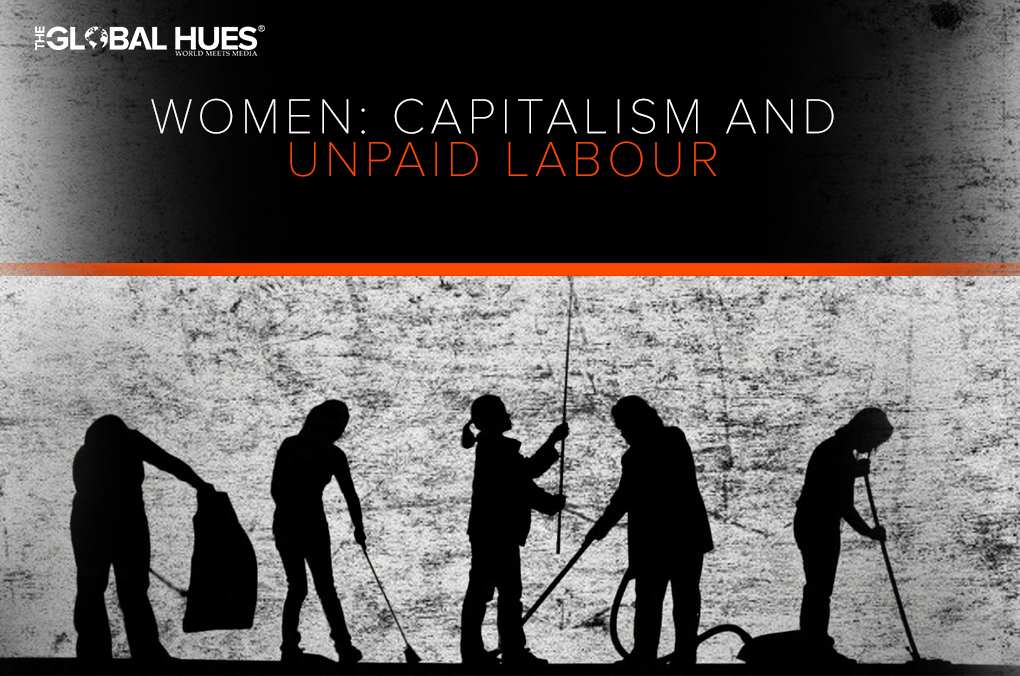Women have been a part of the undervalued system poured on them systematically from historical times. The capitalist system dismisses them as productive and valuable. The major impact of this is observed in domestic labor. Women are expected to impart unpaid domestic labor in non-domestic settings, socially degrading them in terms of emotional labor.
Change doesn’t fall freely, it has to be brought by putting up a fight. Women have been raising their voice from various platforms and sources some examples are Books such as President Jimmy Carter’s “Call to Action” and Sheryl Sandberg’s “Lean In” that highlights women empowerment. The topic of women’s inclusion in the economy was strongly advocated by Former U.S. Secretary Hillary Clinton in one of her speeches for economic growth.
Unpaid Domestic Labor
Domestic labor has always been undervalued. However, it has an effective and visible impact on global economic activities. The system only values the importance of work when money is spent. While working in the non-domestic atmosphere, childcare is opted to handle kids. This, in turn, is an example of money spent on child care which is usually ignored when performed in a domestic setting. In the capitalist system, unless money is spent or earned activity is not seen as productive, and labor not worthy of a wage.
The impact of this scenario is huge, the hard work of low-wage workers such as ‘housewives’ usually goes unseen. No credit is honored to their contribution promoting constant fear of unemployment and lack of social security.
Women in society have been fighting for basic rights from immemorable times. Countless struggles have been poured into a sweat to reach the place of mutual dignity. But are we there yet? Do women really have equal dignity?

In 1975, an example of women’s outbursts was written in the history of Iceland. The women refused to perform any household chores such as cleaning utensils, looking after children, or cooking. The men were bought on their toe tips to manage this chaos, the whole country was facing an overwhelming situation.
Just taking one moment to imagine the value and impact of this unpaid labor imparted by women on the whole nation will shake spines. The responsibilities held by women are notoriously extensive and uncounted for. The job is tiring, attending to a household, looking after the elderly and kids, and many other unnoticed activities. Just because there’s no direct supply and demand work, it isn’t accounted for in GDP.
The truth however speaks below the pretentious layers of formal data, the women alone work for billions and trillions of the economy. Without the smooth hold of a household, the impact will be visible directly on the GDP as every business will fall on their knees. Women, bearing the weight of unpaid labor and grinding in a capitalist system, are the shoulders of the economy.
The protest by women in Iceland was later on named “The long Friday” after which the government was forced to look into the matter and pass a bill regarding equal pay for both genders. Since the day, women in Iceland are one of the highest-paid ones globally. They walk shoulder to shoulder with all the men, as it should be everywhere.

Overexploitation
Women are statistically shown to work harder and for more hours than male counterparts. ‘Overexploitation’ of women in the workplace is not a new concept. Women also indulge extra hours in household work which is practically unaccounted for. The overall status of women is ‘extra working hours’ and “underpaid”. The status difference in terms of the capitalist system is also huge. Even in the 21st century, there is a continuous struggle to maintain wage equality globally. As per the statistics, if the total working hours of women ( both domestic and in household setting) are added, women are “overworked” globally.
An important concept of the sexual division of labor comes into play when talking about the extra hour’s women invest in household chores and family management. The hereditary system has highlighted a capitalist system that favors males more and henceforth the women struggle to be accounted for their hard work and labor. This raises many questions in the terms of Equality.
“In earlier times, children were asked to leave the job profile for their mother as a blank in school forms, if the mothers were housewives”. This line is enough to express the importance that was imparted to housework and several unaccounted hours of work. After several movements on a global level, few changes have been installed in a capitalist system, but they still don’t make women equal in terms of the pay scale or job profiles offered to them. The expectations of women workers in professional settings also include some basic house management skills such as “fetching coffee” or “organizing files”. This is basically an insult to their capabilities.
It is practically impossible to count the amount of labor women put in work that goes totally invisible, as there is no retail or purchase involved in the process. However, UNDP in its report of 1995 estimated this work to be of 11000 billion dollars of worth. This figure was observed in terms of productivity around the world at that time, which was about 23000 billion dollars. This report was an eye-opener for many.
It expressed the contribution of women in the economy in terms of paid work. Nonetheless, the fact still stands that women are still paid significantly less than men for the same work profile. Even in the most advanced countries of the world, women’s pay isn’t equal to men. Many countries have fallen back in human development because of these particular criteria.

Not to forget the countless women, managing both professional and personal life with utmost pride, care, delicacy, and honesty, are a major chunk of job creators in past few years. And are suspected to keep generating successful businesses and jobs in the future. Women who enter the capitalist system are usually more efficient, sincere, and hardworking in terms of their job.
An international day marked in the calendar to celebrate women is INTERNATIONAL WOMEN’S DAY. On this day, Oxfam generated estimated data to calculate the capital women would have generated if they were paid minimum wage for all their unpaid work. The data estimated a $10.9 trillion value that alone crossed the revenue generated by 50 largest companies around the globe such as Walmart, Apple, and Amazon.
The unpaid labor ratio of men and women in the U.S. has narrowed down over the years. Development is clearly visible but it’s still not equal. Women are still working extra unpaid hours along with their full–time jobs. The change is slow but change is definitely coming.
Emotional Labor
Women are exposed to more emotional labor as well, especially those who are working heads-on in the capitalist system and also handling a family, a household, and household chores. The emotional strength and expenditure are too much, usually unaccounted for. The expectations of women in terms of extra work even in professional settings are extreme when it comes to organizational work. This stereotype is constantly pushing women to fight against these issues each passing year with more power.
Despite the evidence of many successful and profitable women lead companies, they face troubles in getting capital for their businesses. The problem also compounds the bigger problem of gender inequality. The problem in capital and financial structure in generating support for women can be a major cause of emotional labor.
Despite all the facts, struggle, and protests clearly standing tall in front of every nation shouting about the women inequality and women injustice in terms of unpaid labor and the capitalist system. The economists and researchers at World Economic Forum have estimated that it will take over a century to bring this change globally.
Also Read:




